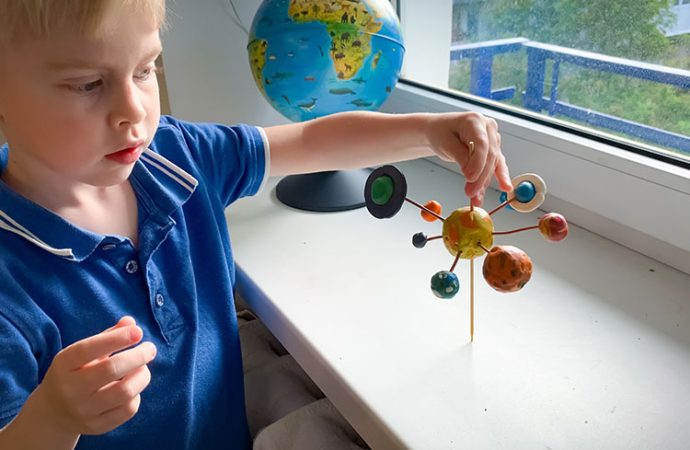Author Recent Posts Rabia Anwaar Latest posts by Rabia Anwaar (see all) US Military Equipment in Afghanistan Fueling Regional Instability – March 27, 2025 Can Trump resolve the Ukraine conflict? – March 11, 2025 Assessment of Pak-Afghan formal and informal channels of Trade – March 11, 2025
Artificial Intelligence is setting records in revolutionizing and digitalizing the world all-over then why not making it a part of education system in Pakistan. It is already on its way to transforming the educational landscape of Pakistan through various tools like Google and Apple assistants, the Century Learning Platform, etc. Before going deep into the topic, we need to assess whether Pakistan is ready enough to make this happen and grant citizens to grab opportunities in this new technological ground? There exists a number of challenges in the way of incorporating AI in education system of Pakistan while also harnessing the benefits that AI offers to the education system of Pakistan. The government of Pakistan seems to making efforts in this regard at professional level but everything fine begins with a first step of implementation and consistency.
AI is usually being used in negative connotations for its limitless power to transform the world. However, this largely depends on the usage of person that what he makes out of it. AI possess amazing qualities to make learning and teaching effective for both teachers and students. The pre-requisite for introducing AI in education system of Pakistan is a suitable budget and trained and technical experts to deal with it effectively. AI has innumerable benefits to offer to education system in Pakistan. Like every other country, Pakistan needs to digitalize its learning and teaching methods for better outcomes but with appropriate checks and balances to avoid its misuse either by teenagers or by adults.
AI hosts a number of advantages: it can help circumvent disrupting education of students even during pandemic as it did during COVID-19. The Century is AI powered platform introduced by Beaconhouse School System for undisrupted education of children during harsh times of pandemic. It also assists in personalized learning by generating personalized learning paths. This can help cater to individual needs and pace of learning, which is especially important in a diverse educational landscape like Pakistan’s.
Pakistan is a country where people at home either speak their mother language Urdu or their local language with distinct dialects of Punjabi, Sindhi, Balochi, or Pushto but are required to speak well and perform in English language being official language of the country. Students can also make the most out of it by using AI generated learning platforms as it helps in language learning and teaching, helping students improve their language skills through interactive exercises, grammar checks, and pronunciation feedback. Moreover, it has also the ability to educate tutors regarding their teaching techniques and suggest education institutions for improving necessary changes in curriculum a better way of delivering education.
The question here arises whether Pakistan is willing to provide access to basic education to all and holds ample resources to introduce AI generated learning platforms with employment of experts of AI in education system? The statistics, according to official data, guide that the literacy rate of Pakistan is approximately 59% of its population with stark inequalities between rural and urban centers, digital divide and gender disparities. Pakistan stands at lower grades in education index as approximately only 2.3% of GDP share is spent on education budget. Although, AI has its immense and remarkable teaching and learning benefits yet we cannot ignore mass challenges in the education system of Pakistan.
Despite education being a fundamental right of every citizen of Pakistan as per Article 25A of the constitution of Pakistan, education still seems a far reality for those residing in some rural and remote areas, with the worse socio-economic situation of the country, approximately 22 million children are kept out-of-school. For such people, education as the basic right with all basic facilities and trained teachers is still a dream. This requires education to be prioritized by the government of Pakistan at earliest then comes AI incorporation. The uniformity in education system across the country is a hard nut to crack but nothing is impossible.
As far as AI education and learning at higher level is concerned, the government of Pakistan is making efforts. Pakistan’s Ministry of IT and Telecom has charted an ambitious idea in the draft of National Artificial Intelligence Policy to incorporate AI in education system of Pakistan gesturing to adapt to its rapid pace of digitalizing the educational landscape and world at large. The policy aims at training one million IT graduates in AI and related technologies to give a boost to its technological sector growth. The plan holds to fund almost 1000 Research and Development initiatives and by the end of 2027, recruit approximately 10,000 new technicians and trainers for tasks.
The initiative taken by the government is applaudable but Pakistan is notorious in implementation of its policies. Mere drafting a policy would not guarantee its implementation because in the way of executing this policy there exists a number of obstacles lined-up as suitable education budget, sincerity of government, resource and infrastructure inequalities, digital divide, and gender disparities. Unlike elitist schools of Pakistan: Beaconhouse and Roots School System, the education system of Pakistan confronts a number of basic facility challenges which needs to be addressed at first place. AI has become an essential to meet the world at its pace but facility of basic education cannot take a backseat meanwhile.
- US Military Equipment in Afghanistan Fueling Regional Instability - March 27, 2025
- Can Trump resolve the Ukraine conflict? - March 11, 2025
- Assessment of Pak-Afghan formal and informal channels of Trade - March 11, 2025












Leave a Comment
Your email address will not be published. Required fields are marked with *